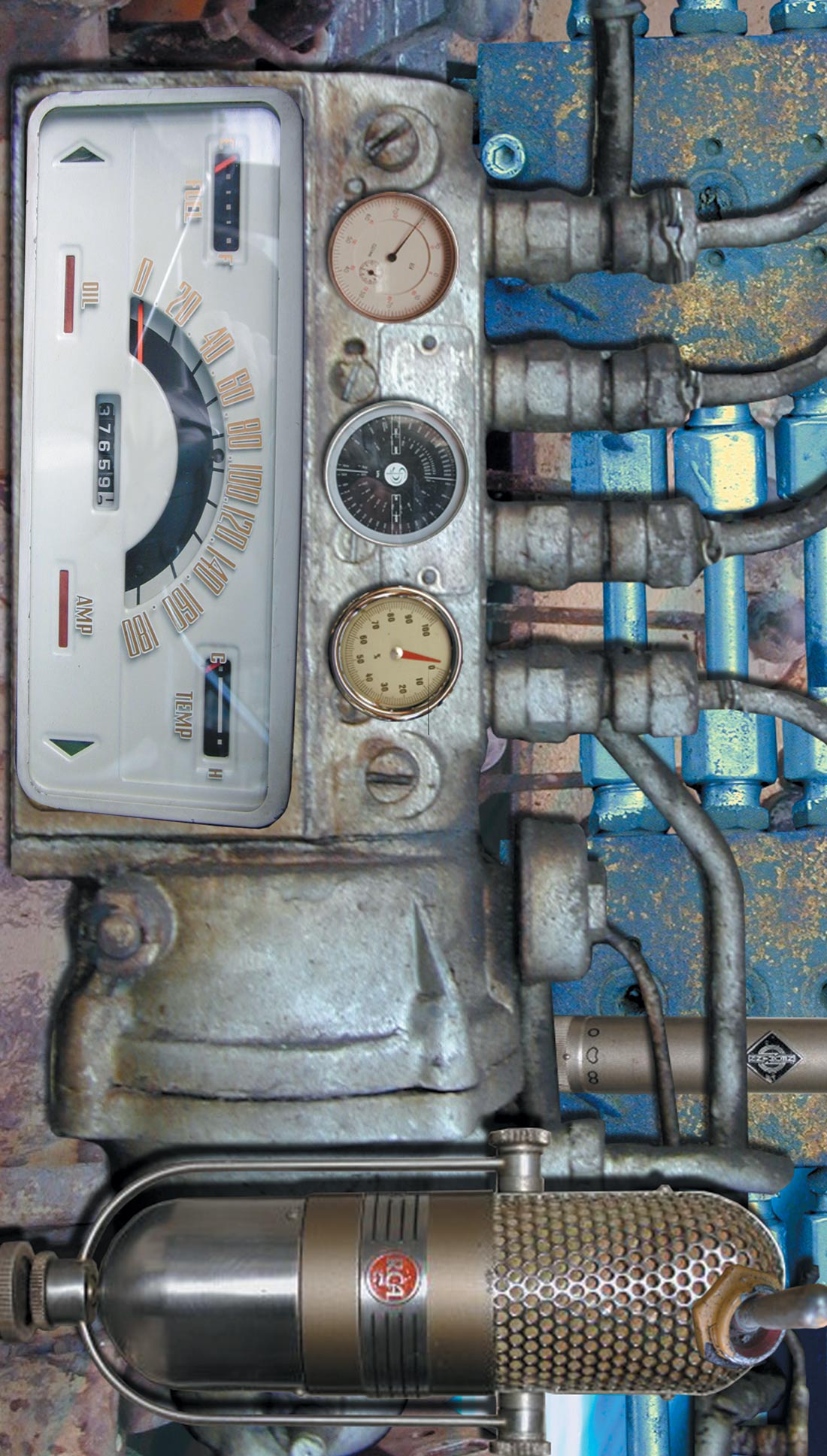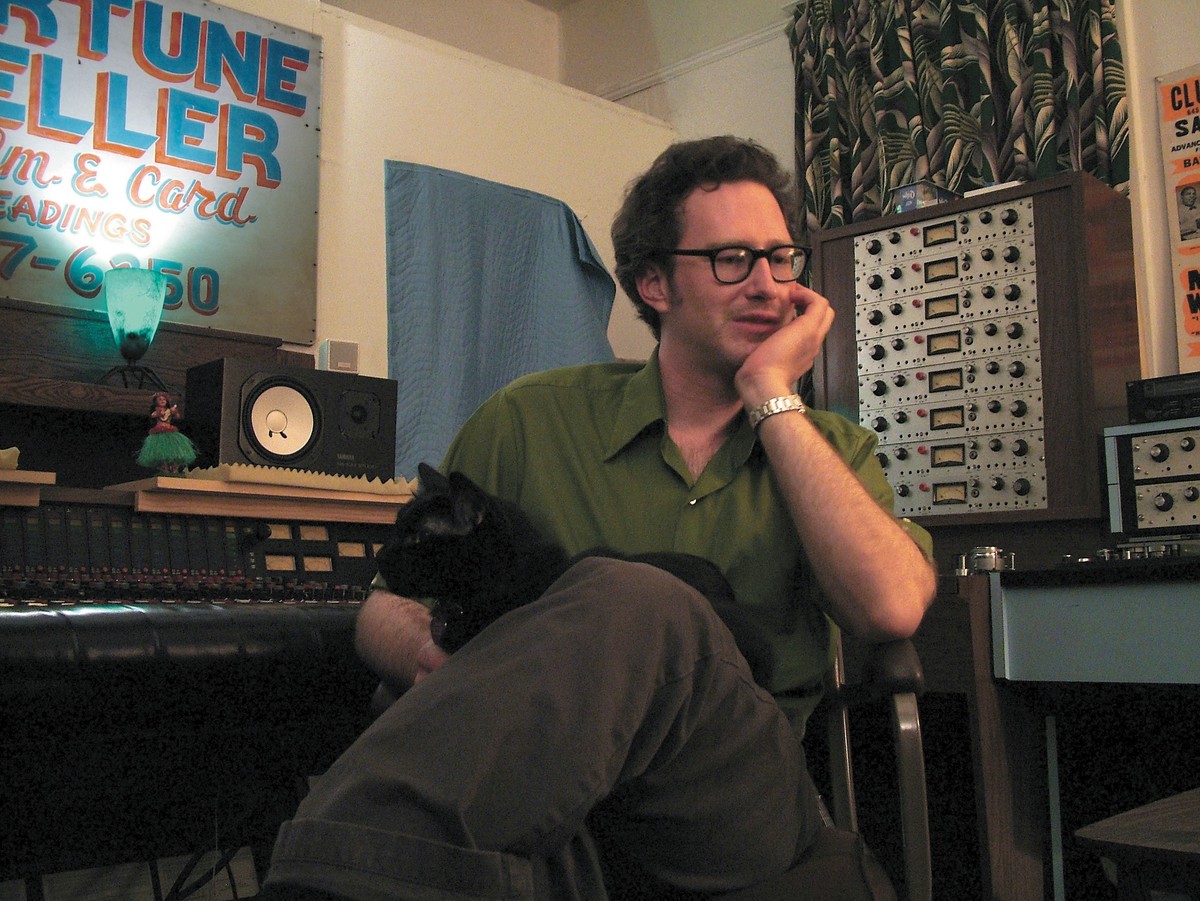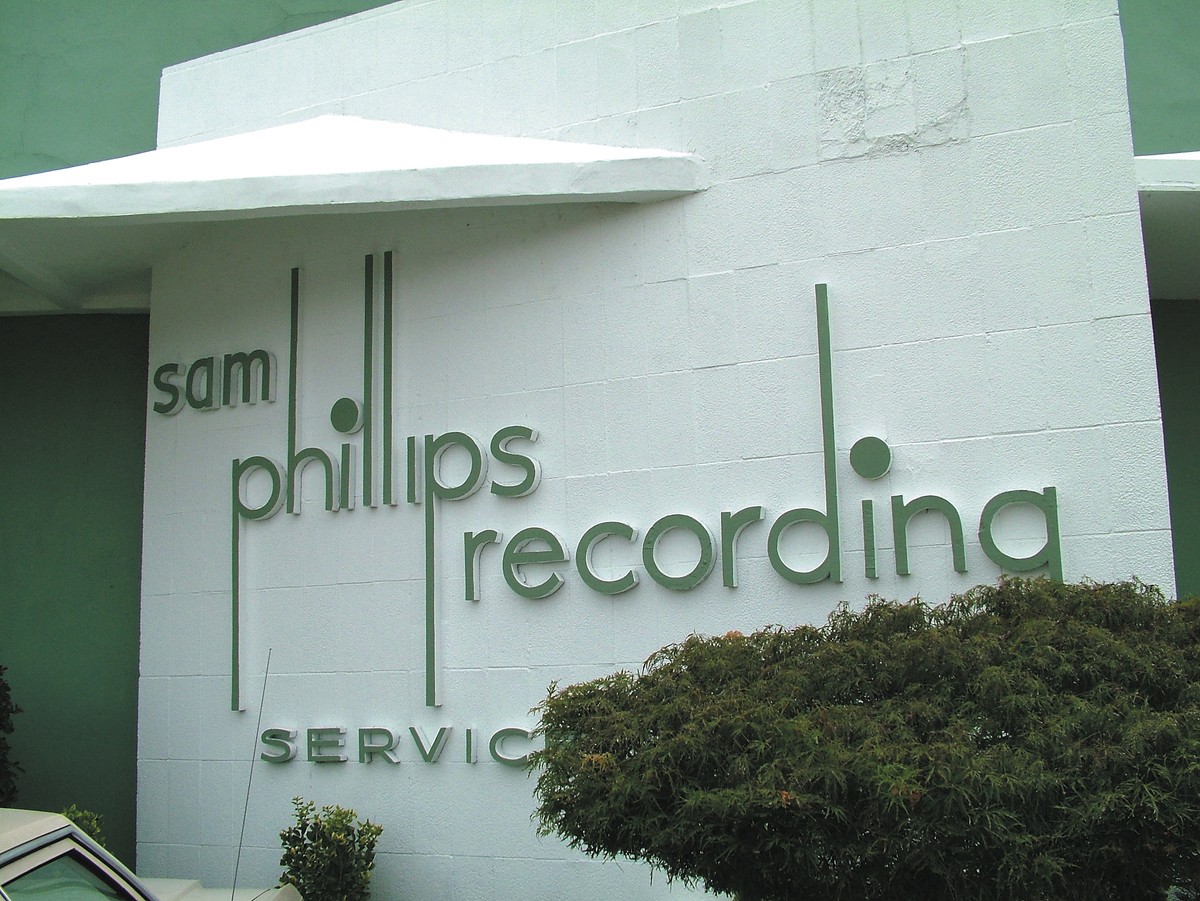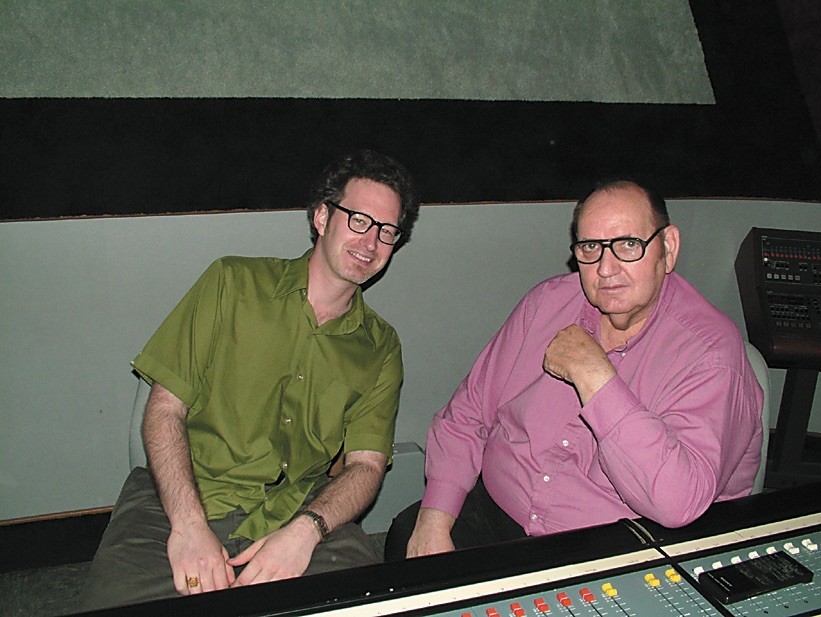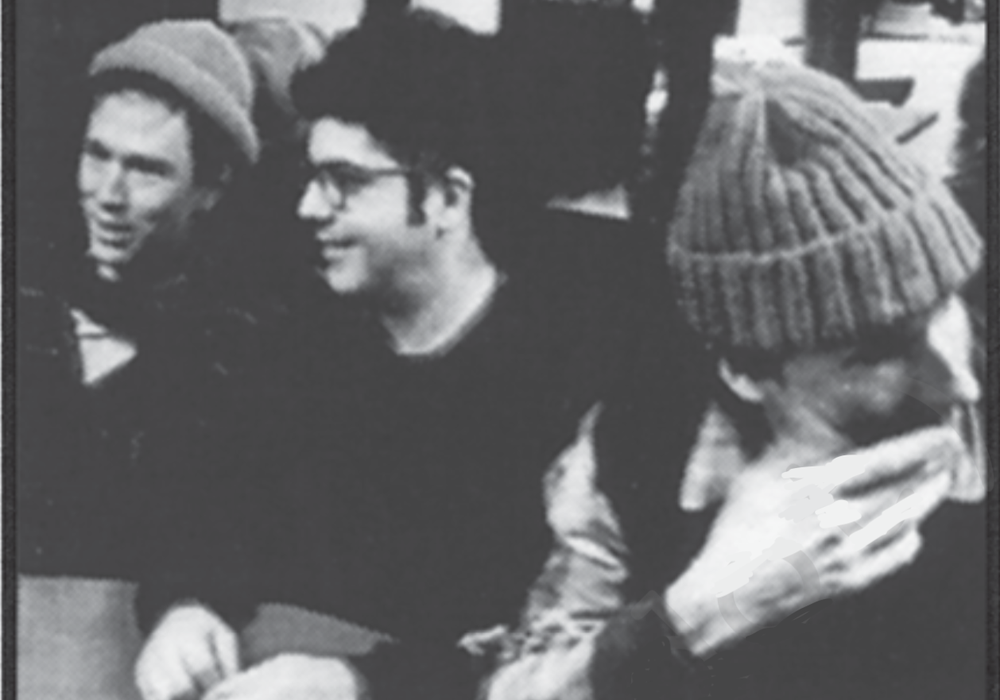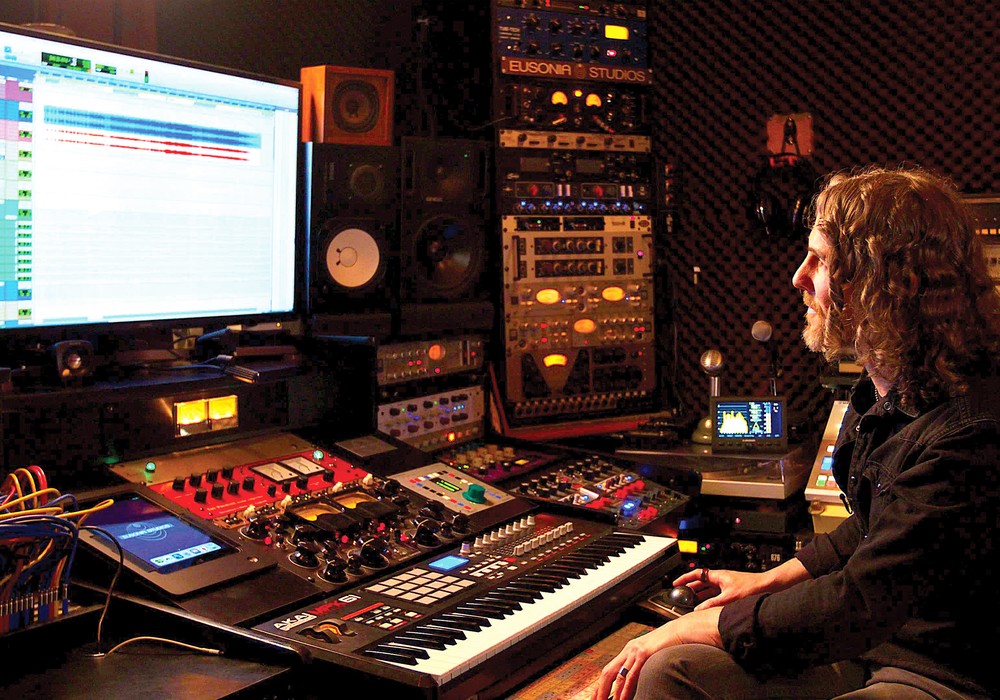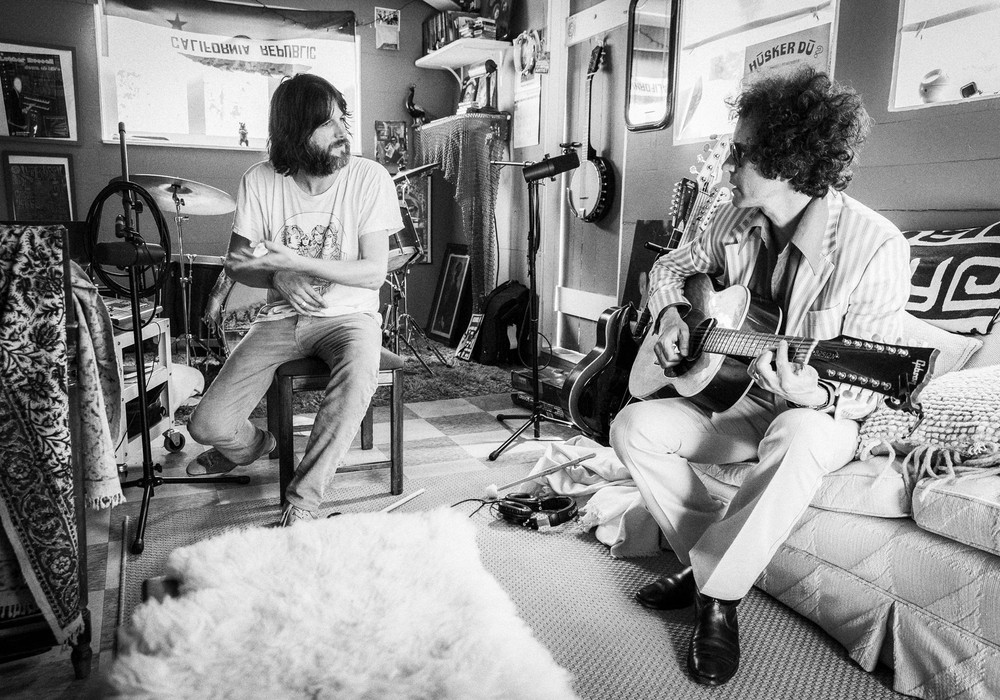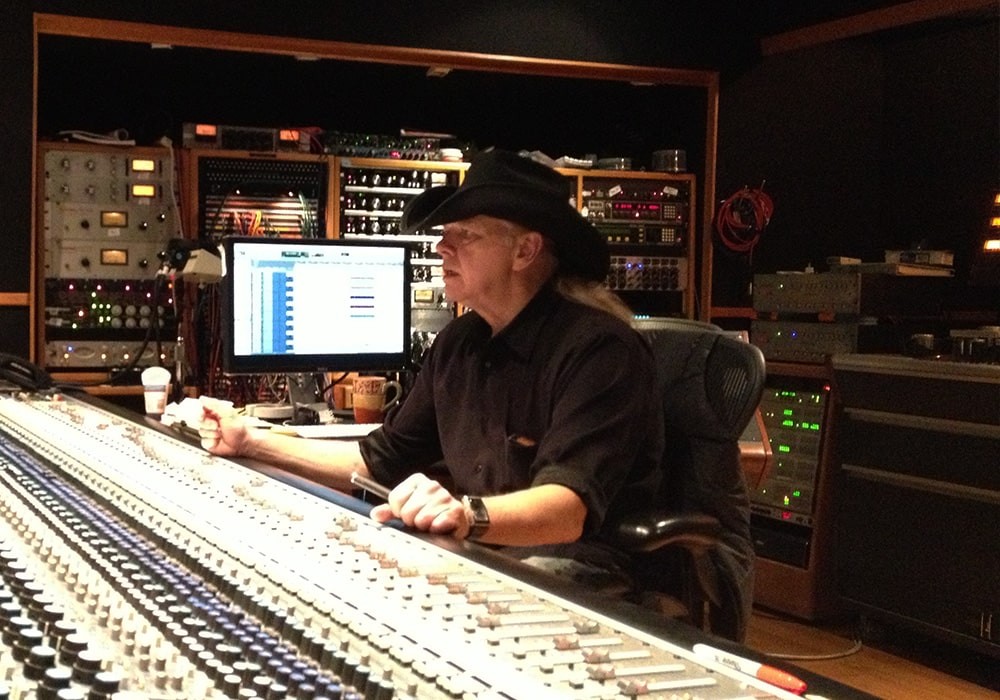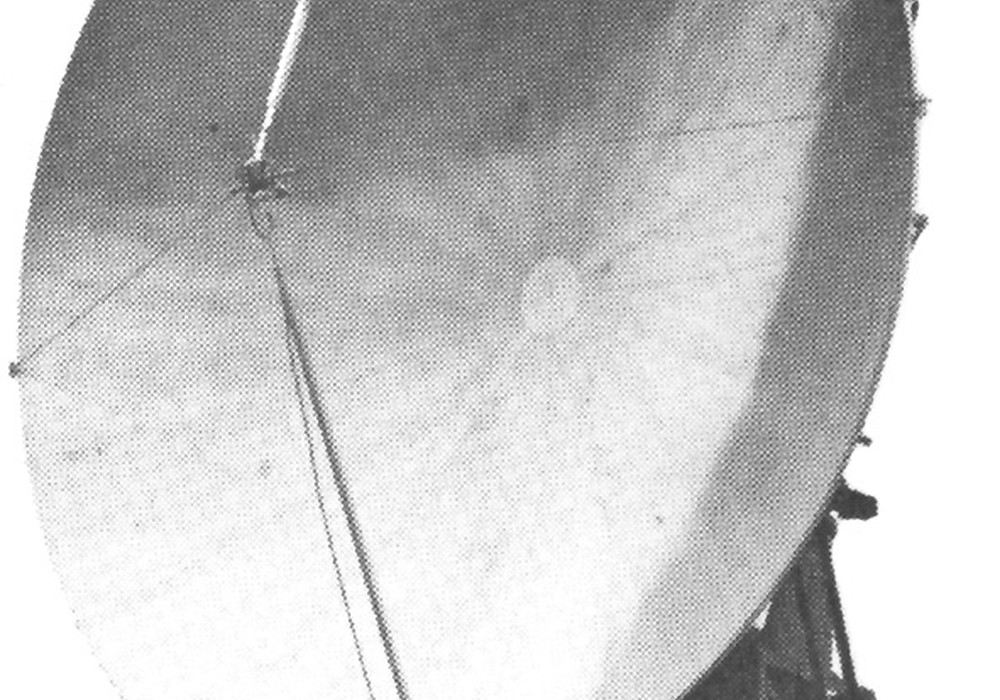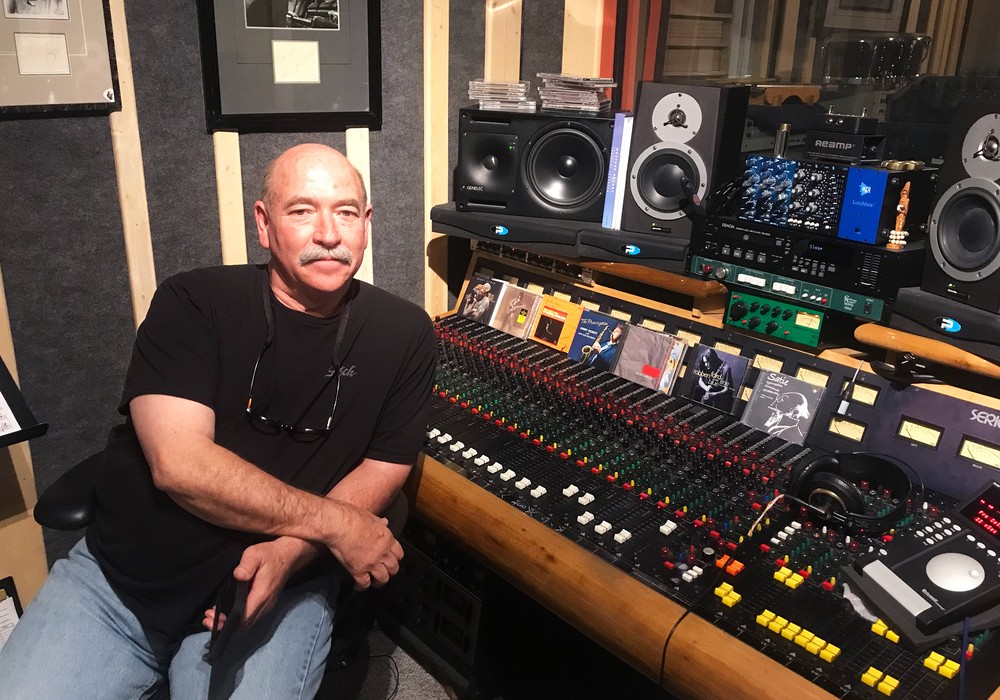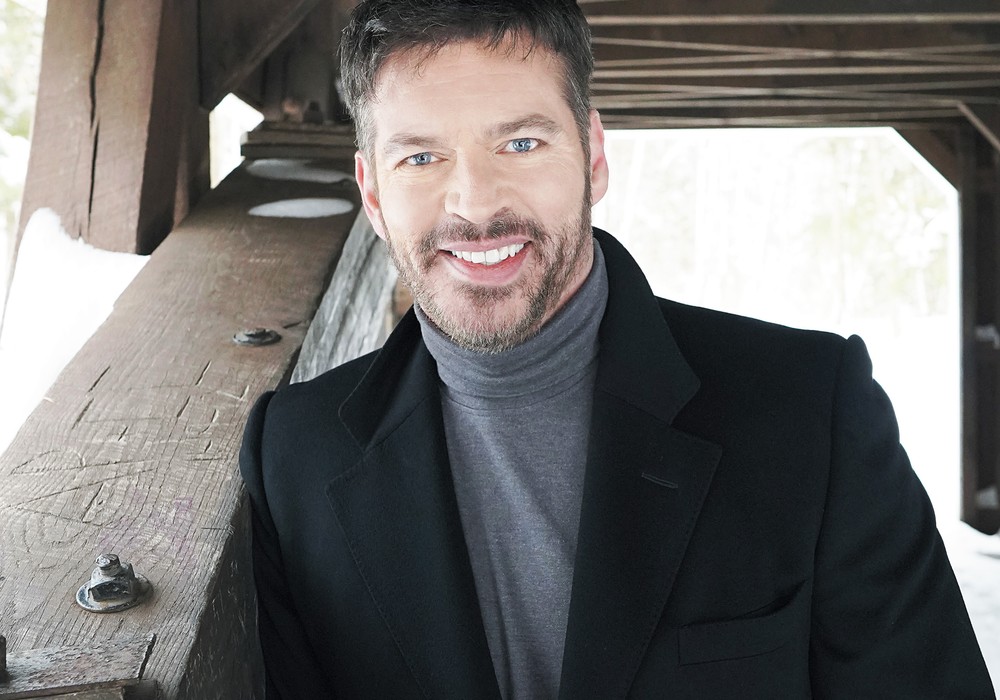Scott Bomar just turned 30, yet he's been playing bass professionally for 15 years, on stage and in studios. His band, Impala, churned out garage rock in the nineties, and eventually Scott's interests led him into the studio while also forming the Bo-Keys with an all-star section of Stax sidemen: Ronnie Williams (The Bar-Kays, David Porter) on Hammond B-3 organ, drummer Willie Hall (The Bar- Kays, the Blues Brothers), Charles "Skip" Pitts (Isaac Hayes) on guitar plus some younger horn players. Their album, The Royal Sessions, is true to the classic Memphis sounds and got me curious about Scott before meeting him in person. We hooked up at his home studio where he's been gathering some cool older gear and instruments.
LC: What got you into recording?
There was a place here called the Antenna Club and I started playing there when I was 15. Where I went to high school, the Memphis City Schools had some really good programs — the school I went to had a radio station. That's where I first learned how to operate a tape machine and a board and microphones. One of the teachers there was a former DJ at WDIA, which was real famous as the first African-American-owned radio station. There were some real great teachers there. I learned a lot about the technical aspects of microphones and mixers and tape machines in that program. Around the same time I recorded at Doug Easley's studio, which at the time was in his backyard. That was the first place I recorded. And then a few years after that I recorded with Roland [Janes] over at Sam Phillips' [Recording Service]. I did a few records over there with him and he used to teach recording at a college. Jim Dickinson calls him "The Guru". He's been doin' this stuff since the '50s.
LC: Man...
He's been around. He's recorded so many sessions and he's been around so many great talents, you know? He was taught by Sam Phillips. I learned so much from him, really. In Memphis there are just so many studios and so much history here and so much music — as a musician and as someone that's interested in music it's hard for me not to fall into it. The more bands I was in [that] recorded the more I started getting interested in the technical end of it and wanted to know, "Okay, what does this microphone do?" There were certain sounds that I knew I liked and I started kinda seeking out, doing research. Easley and Sam Phillips were the two places I've done most of the recording I've done. I've done stuff out of town. I recorded at Egg one time.
LC: Oh at Egg? At Conrad Uno's?
I was in this band Impala.
LC: When you first started recording were you doing your own band?
Well, I guess the bands I was in, when we got into the studio I got more and more involved in the process of it. I got pretty obsessed with it pretty early on and started reading anything I could about it. I guess one of the big breakthroughs for me was the echo chamber, 'cause I recorded at some studios and at the time, this was like the late '80s so everybody had Rev-7s. That just never did sound right to me, you know? The sound of those things just always really bothered me and around the same time I was reading about Phil Spector and about echo chambers.
LC: Yeah. Well you're lucky being in a town that even has any echo chambers!
That's very true. After that I discovered plate reverbs, which I'm real fond of. I think it was getting frustrated with some of the sounds I had gotten in studios and when I realized, "Well this isn't what I'm looking for. I wanna find out how to get these other sounds that I hear on like, say, a Willie Mitchell record or something."
LC: Did you intern at all anywhere?
I did. I interned at Easley and Ardent. I mean anytime I ever went to a studio I was always paying close attention to what the engineer was doing. And working with Willie Mitchell, it's like beyond interning, you know? That's invaluable, you know, to get to work with someone like that and see them work and how they do things. He's a guy like Roland, who's been doin' this for 50 years. You do something for that long no matter if it's somebody that's working on cars or building houses or making pottery. It's anyone who has done their craft that long is gonna really...
LC: They're gonna be good! [laughs]
Yeah.
